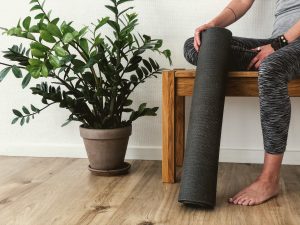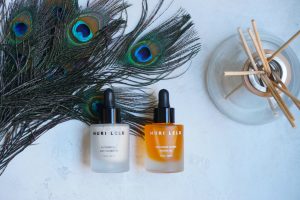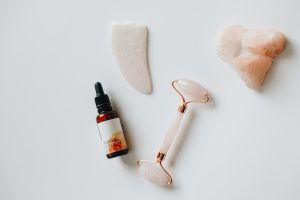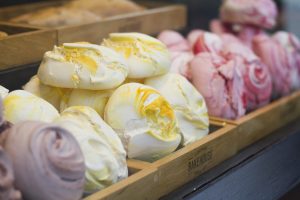10 Best Essential Oils for Bath Bombs and Their Advantages
Bath bombs first appeared many years ago, however, they’ve gained popularity quite recently. There are so many bath bomb options for various purposes and with different ingredients, including diverse combinations of essential oils.
Essential oils for bath bombs have several significant benefits, including relaxing, soothing, and healing effects. However, you need to do proper research before adding certain essential oils to your bath bombs to avoid risky outcomes.
Hence, whether you’re testing out bath bombs with different essential oils or you’re planning to make your own, you need to understand what effects each oil has. Below, I’ve selected the best essential oils for bath bombs. I’ll briefly cover all their specifications, pros, and cons to ease your choice.
Read on for all the details!
Table of Content
What Are Essential Oils?
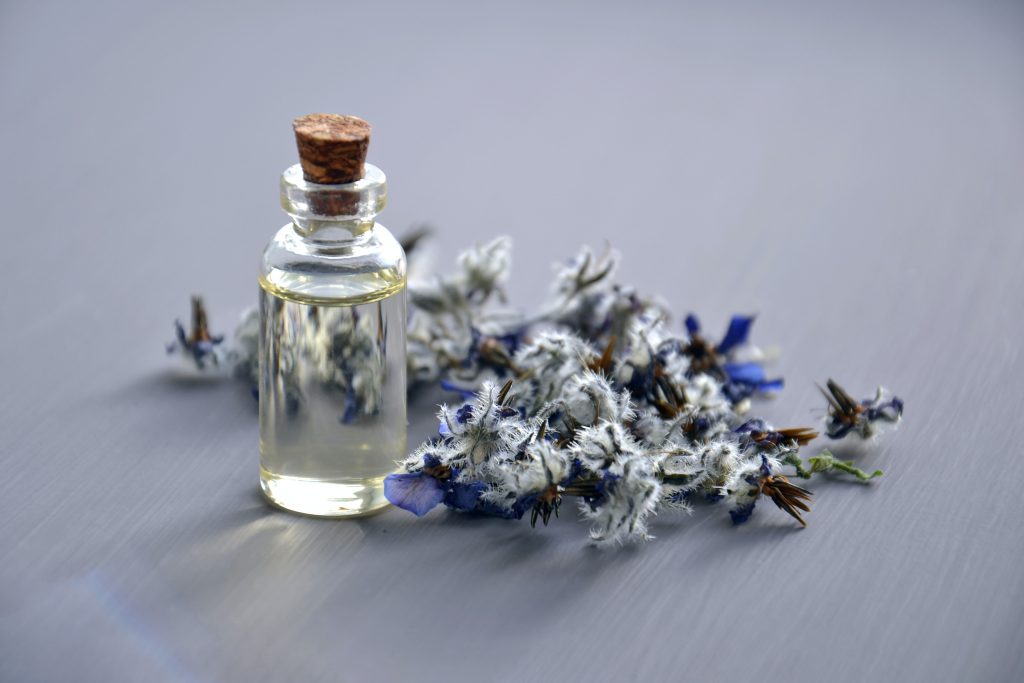
Essential oils are concentrated aromatic liquids extracted from fruits, seeds, flowers, roots, leaves, and so on. Plants create essential oils naturally and store them in tiny sacks. Fruits store their essential oils inside their skin. This essence is the main source of the odor of the plant.
Essential oils are often used for aromatherapy and in various beauty products. Manufacturers get essential oils through very delicate extraction processes. There are various options for extracting essential oils, however, the most popular types are steam distillation and cold pressing.
Here’s a video of a professor at Jade Bloom University who explains the process of essential oil extraction through distillation and cold pressing.
Health benefits and contraindications
Essential oils are known to provide a wide array of health benefits. They are widely used in aromatherapy for therapeutic purposes. Essential oils are also used during massages and are absorbed directly through the skin.
Here are some of the main benefits of essential oils:
- They reduce stress and anxiety.
- Tea tree and other essential oils are beneficial for fungal infections.
- Essential oils like Lavender, Ylang Ylang, Chamomile, and others are known to help with sleep.
- They are beneficial for people with chronic inflammatory conditions leading to cancer and autoimmune diseases.
Despite all the benefits essential oils offer, you should be aware of their contradictions:
- Allergies. If you are allergic to flowers, citruses, or anything else that a specific essential oil may contain, then obviously, it’s not recommended to you.
- Skin irritation. If your skin is prone to irritation, I’d recommend doing a quick patch test before using oils.
- Underlying medical conditions. If you have any medical conditions, you should check with your doctor to be sure that the specific essential oil is not dangerous for you.
- Internal use. Although some companies may recommend adding essential oils to water or food, it may cause serious issues. When you ingest essential oils, they get absorbed more quickly and may cause headaches, heart racing, and in some cases, seizures.
Keep on reading to find the right dosage of essential oils in bath bombs and much more!
How much essential oil do you need to add to bath bombs?
The average dosage of essential oil should take 1-4% per ½ ounce of a bath bomb. It’s somewhere between 5 to 20 drops. This amount depends on the size of the bomb, so if you’re making a small to medium-sized one, 5 drops should be enough. But if you’re going for a large bath bomb, you can add up to 20 drops or even more.
The dosage highly depends on preference and skin type as well. If you have sensitive skin, I’d recommend starting with fewer drops to see how it works on you. You can check out this article where I share a list of bath bombs for sensitive skin. Also, the more essential oils you add to the bath bomb, the slicker the water becomes and makes the bathtub slippery, so be careful with that.
Top 10 Essential Oils for Bath Bombs
I’ve selected the top ten essential oils for bath bombs. If you want to know more about each, where they come from, and their benefits and drawbacks, keep on reading.
1) Lavender
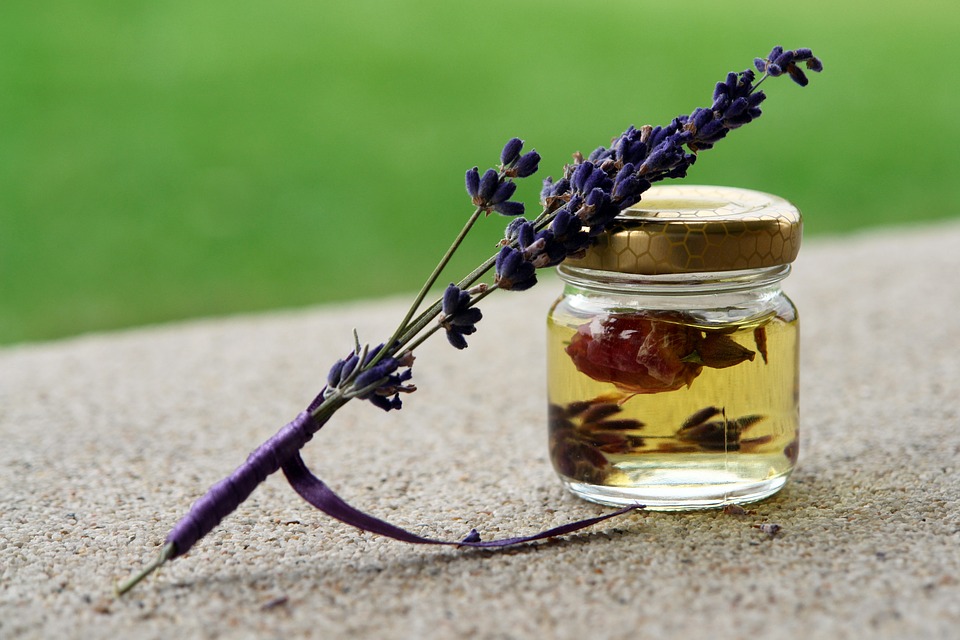
Lavender is one of the most common essential oils for bath bombs, and it’s famous for its numerous benefits. It works as a stress reducer and provides a good night’s sleep. Lavender oil is also great for treating hair loss and has a wound-healing effect.
If you’re looking for something to relax and calm down after a hard-working day, then a bath with lavender oil is exactly what you need. Yet, to be sure you can use it for your skin type, make sure to educate yourself with these pros and cons:
Pros:
- Has a relaxing and calming effect.
- Helps treat wounds faster.
- Possesses antiseptic properties.
- Balances blood pressure.
Cons:
- It’s not recommended to use during pregnancy or breastfeeding.
- Don’t use it two weeks before surgeries.
- It can slow down your central nervous system.
Moving on to the next essential oil with a refreshing scent – peppermint.
2) Peppermint
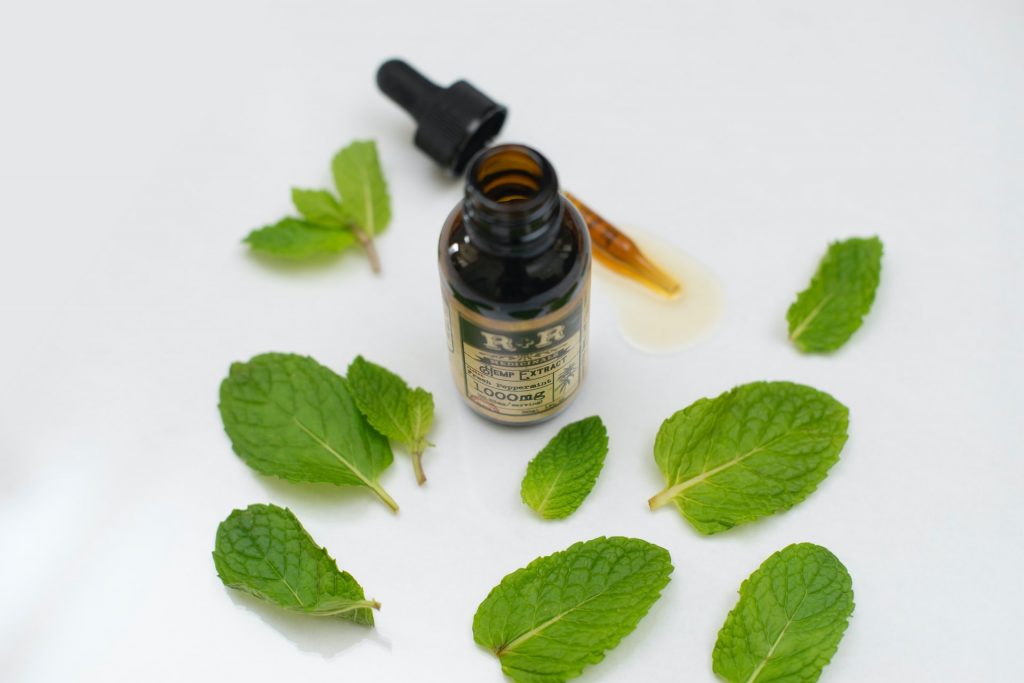
Peppermint essential oil has a refreshing minty smell. It’s extracted from the leaves of peppermint that typically grows in North America and Europe. Peppermint essential oil is often present in various beauty products, including soaps, shampoos, bath bombs, etc.
As with any essential oil, this one also has distinct advantages and disadvantages:
Pros:
- Has an anti-inflammatory effect.
- Helps relieve fatigue, both mental and physical.
- Has a mood uplifting effect.
- Is effective for memory and thinking.
Cons:
- When taken orally, it can cause heartburn and nausea.
- Aromatherapy with peppermint oil can be toxic for pets, children, and pregnant women.
- Can cause allergic reactions.
Moving on to the Roman Chamomile.
3) Roman Chamomile
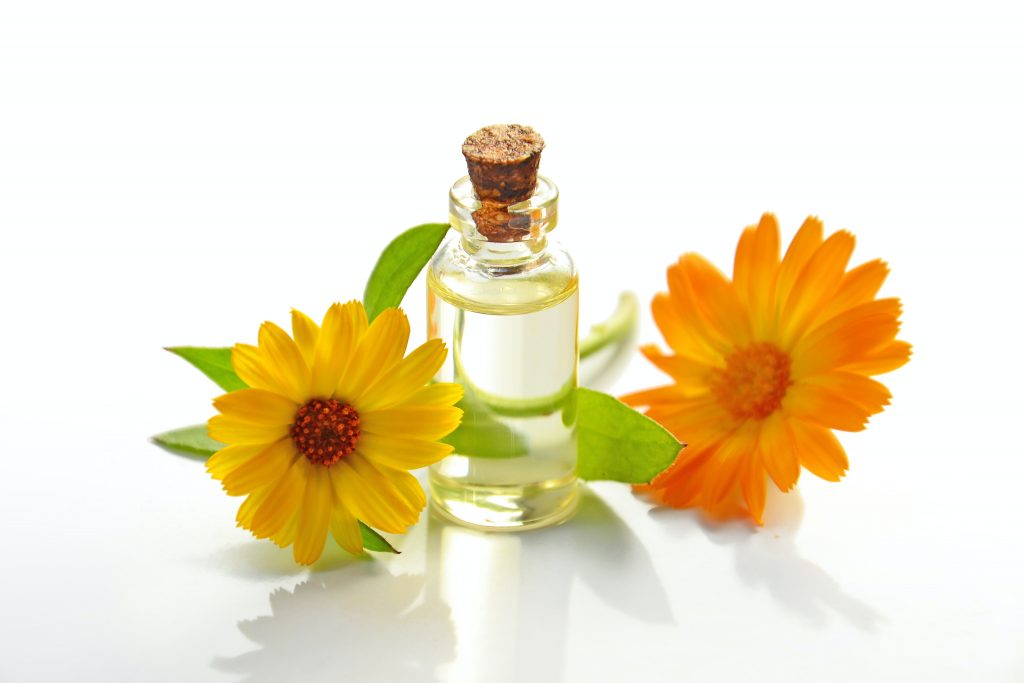
Roman Chamomile essential oil has a delicate smell that’s perfect for creating a relaxing atmosphere. This essential oil is extracted from the Roman Chamomile flowers that grow in Europe and America. Manufacturers add this oil to various products, such as soaps, bath bombs, shampoos, serums, and toners.
These are some pros and cons of adding this oil to bath bombs:
Pros:
- Has a nourishing effect on the skin.
- Helps calm the mind and body.
- It helps relieve anxiety.
Cons:
- Can cause eye irritation.
- Can cause allergic reactions.
Off to the next one on the list.
4) Eucalyptus
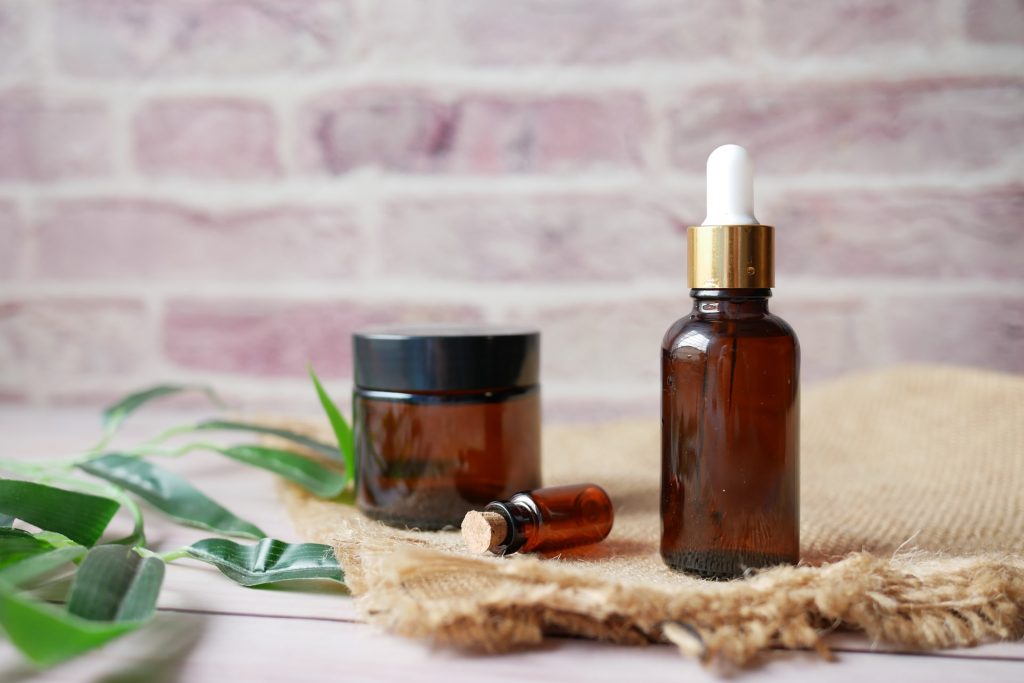
This essential oil has a soothing effect and also serves as an antiseptic. You can take a bath with eucalyptus oil after you get mosquito bites to help soothe the irritation. It is also known to be beneficial for acne-prone skin. This essential oil is extracted from eucalyptus leaves.
Here’s some more information on the pros and cons of eucalyptus oil.
Pros:
- Has disinfectant properties.
- Relieves coughing.
- Good for treating acne.
- Helpful for skin prone to dryness
- Is known to boost the immune system.
Cons:
- Consuming it orally can have a toxic outcome.
- It’s more expensive compared to other oils.
- It can cause diarrhea and vomiting.
Now, let’s go over to the next essential oil on my list and my personal favorite – tea tree.
5) Tea tree
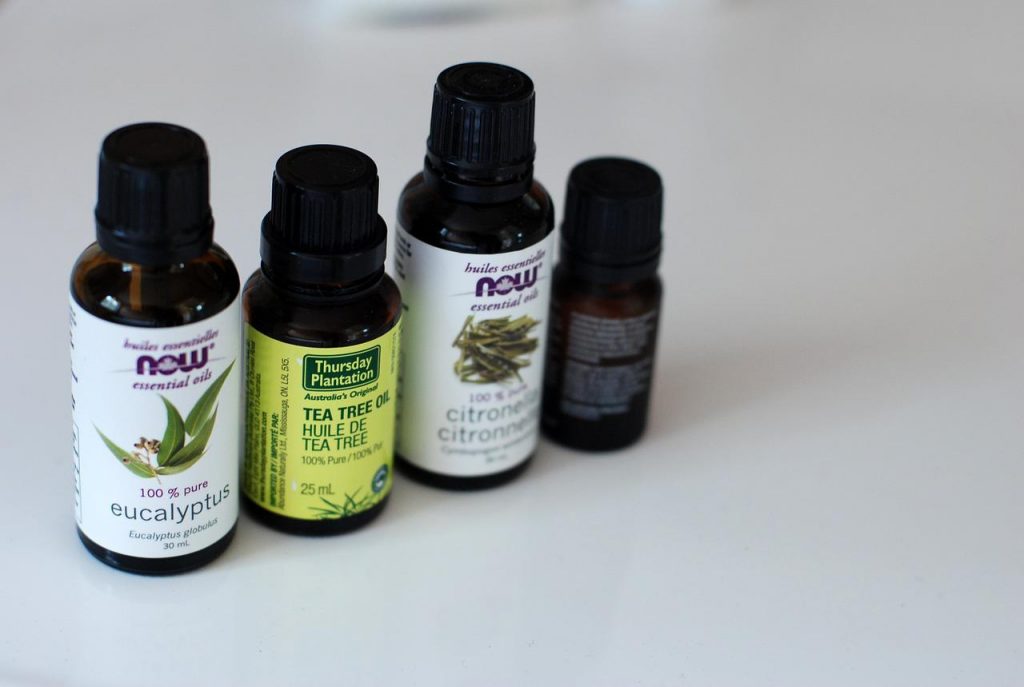
Tea tree oil has a very distinct and refreshing scent. It comes from the tree named Melaleuca alternifolia, which can grow in southwest Australia. Natural tea tree oil is extracted through distillation and used not only for bath bombs but for other beauty products as well as soaps, shampoos, essences, and whatnot.
Now, let’s take a look at the pros and cons of this oil.
Pros:
- It has antibacterial properties.
- This oil can help soothe inflammation.
- It has a beneficial effect on fungal infection treatment.
- A study shows that it helps to treat dandruff.
Cons:
- In some cases, it may cause male prepubertal gynecomastia.
- Oral consumption of tea tree oil may cause nausea and vomiting.
- Oral consumption can also cause confusion and hallucinations.
The next one is Bergamot essential oil.
6) Bergamot
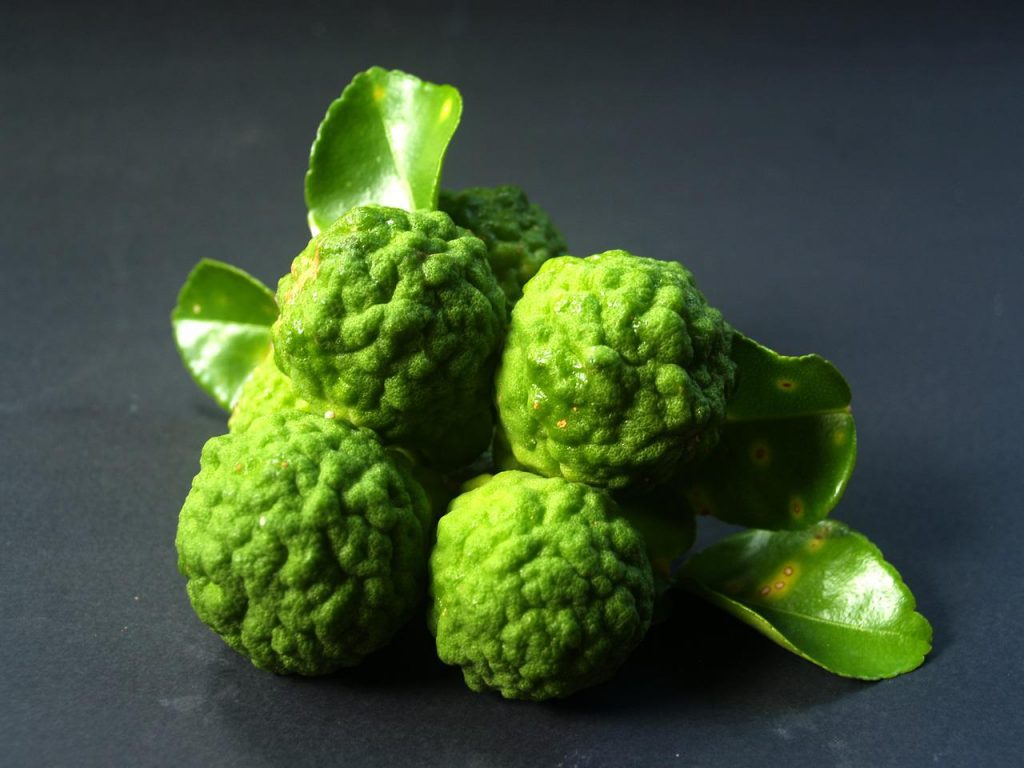
This essential oil comes from citrus rids growing on bergamot orange trees. One of the most common uses of bergamot oil is in Earl Gray tea, which you probably are familiar with. Apart from that, Bergamot oil is used for making perfume, shampoos, bath bombs, and other self-care products.
Here’s some more information on the advantages and disadvantages of the bergamot essential oil:
Pros:
- It reduces inflammation and pain.
- Reduces stress and has a calming effect.
- It lowers blood pressure.
- When taken orally, it’s effective for the digestive system.
Cons:
- Can cause allergic reactions.
- Can cause a burning effect, so I’d recommend doing a skin patch test.
Moving on to Ylang Ylang.
7) Ylang Ylang

According to a study by the National Library of Medicine, Ylang Ylang is perfect for reducing stress and anxiety. It stabilizes heart rate and lowers blood pressure, providing body relaxation. This essential oil is extracted from flowers that typically grow in the Philippines and Indonesia. Ylang Ylang usually appears in skin beauty products and hair products to increase hair growth.
Take a look at the most common benefits and disadvantages of using the ylang ylang essential oil in bath bombs.
Pros:
- It can kill bacteria.
- It’s known to boost sexual desire.
- Balances blood pressure.
Cons:
- It’s not recommended to use in excessive amounts among pregnant women.
- In some cases, it can cause irritation.
Now let’s move on to the next one.
8) Rosemary
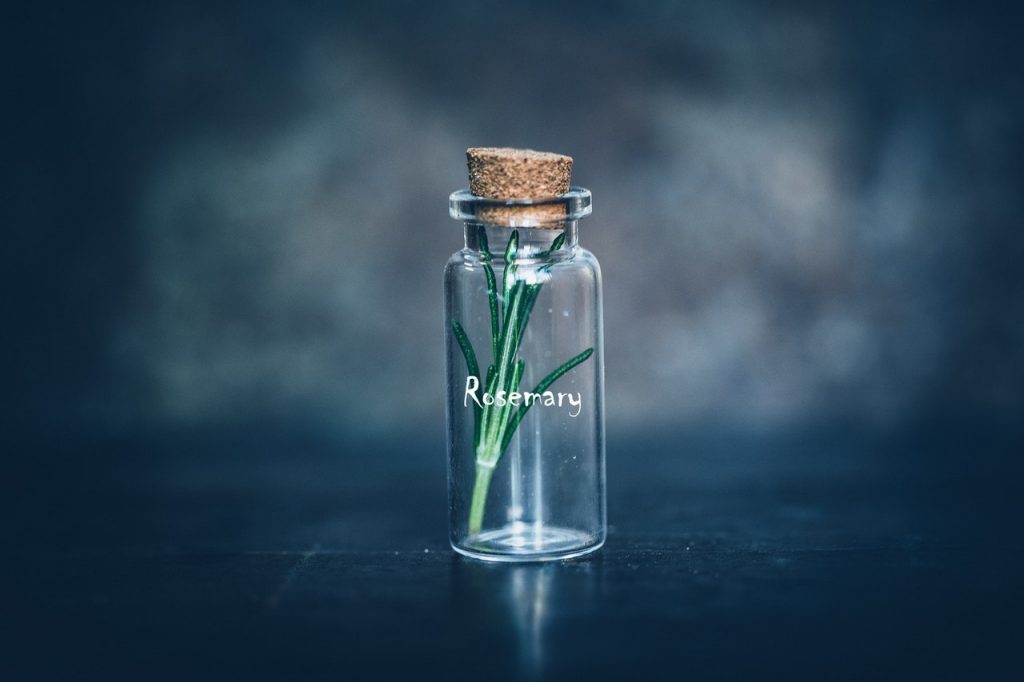
Rosemary is one of the best-smelling essential oils with a nice woody scent. Manufacturers get it through the distillation process from the plant’s leaves and flowers. Then, they add it to medications and beauty products such as bath bombs, soaps, and various creams. This oil has the following pros and cons.
Pros:
- Serves as a pain reliever.
- Stimulates hair growth.
- Reduces joint inflammation.
- Improves blood circulation.
- Helps to overcome stress.
- Improves brain function.
Cons:
- It’s toxic if taken orally.
- May irritate sensitive skin.
- Can burn when applied to the eye.
Off to the next option.
9) Patchouli
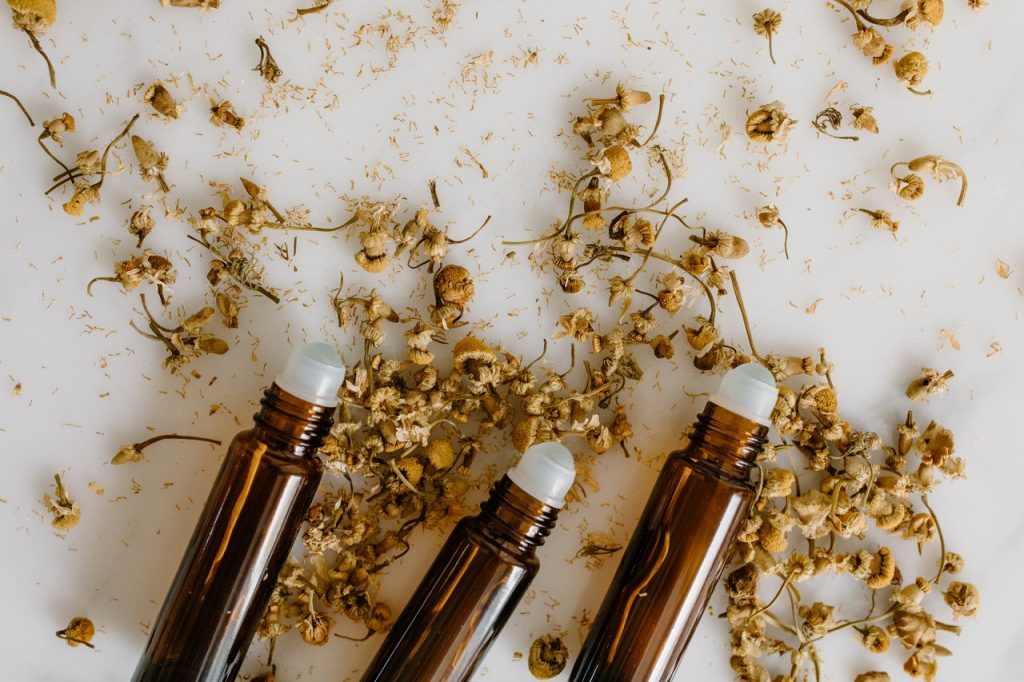
This aromatic oil is made by drying out plant stems which then undergo a distillation process. It has a unique smell that combines both spicy and sweet characteristics. People often use it for aromatherapy treatment and in various beauty and skin care products. This oil has some pros and cons, take a look.
Pros:
- Treats different skin conditions, including acne and dermatitis.
- Helps get rid of oily hair and dandruff.
- Relaxes and reduces stress.
- Helps get rid of headaches.
Cons:
- People who take blood-thinning medication should avoid this oil since it causes blood clotting.
Now let’s see what the last option has to offer.
10) Sandalwood
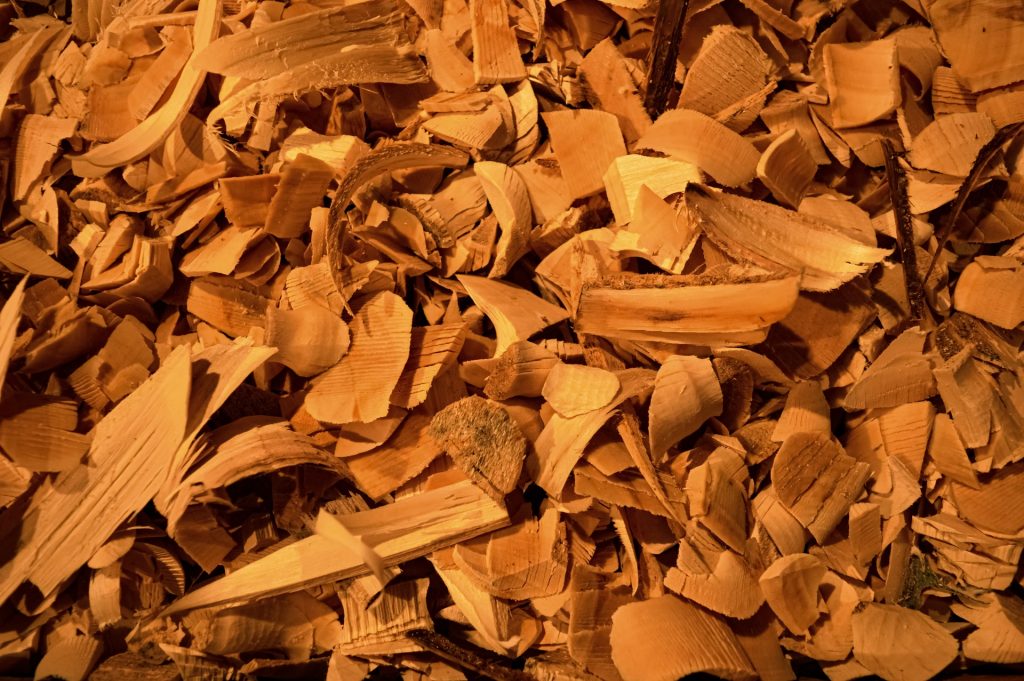
Sandalwood oil has a familiar smell you can spot in various perfumes and air fresheners. This essential oil is extracted through steam distillation that can take up to 70 hours. Aside from its smell, it has numerous benefits. It’s also very common in medications and beauty products.
Pros:
- An anti-inflammatory effect.
- Antiseptic properties.
- Relaxing and stress-relieving qualities.
Cons:
- It can cause itching and irritation on sensitive skin.
- Can cause nausea and vomiting.
Those were my list of top 10 essential oils you can use in bath bombs.
3 Essential Oil Combinations for Different Purposes
You can apply essential oils separately as well as in combination with other oils. A single essential oil can have different properties, however when used in combination with other oils, they may have other effects.
People use essential oils in bath bombs for certain purposes. Below I will talk about the best combinations of essential oils for bath bombs that tackle the three most common needs.
For after-work relaxation
I’m sure you know the feeling when you come home from a tiring day at work, and all you want is to take a relaxing bath. There are essential oil combinations that are perfect for this cause. You can try adding 10 drops of jasmine, 5 drops of rose, and 5 drops of patchouli essential oils to create a relaxing bath bomb.
Another blend is 10 drops of lavender, 5 drops of sandalwood, 3 drops of vetiver, and 2 drops of Roman chamomile oils. This is an amazing mix to unwind after a hard work day.
For better sleep
Have trouble with sleep? I’m sure bath bombs with these oil combinations will help you sleep like a baby. There are several oils that are good for sleeping. I’d recommend combining two, since to me personally, having diverse smells is too much, especially if you’re trying to sleep. However, it’s completely optional – you can mix as many oils as you wish.
You can choose from bergamot, chamomile, lavender, jasmine, ylang-ylang, or sandalwood essential oils and make your own blend. As for proportions, you can add up to 10 drops of essential oil into one tablespoon of carrier oil.
For immune support
Essential oils are organic remedies for keeping a healthy immune system. Use the blend of the following oils to support your immune system: 15 drops of melaleuca, 15 drops of lemon, and 10 drops of oregano essential oil.
Over to You
Let’s wrap this up.
Essential oils are natural ingredients that are often present in various medications, self-care products like bath bombs, and aromatherapy.
There is a wide selection of essential oils for bath bombs you can choose from, including lavender, camomile, sandalwood, and much more. These essential oils have many benefits, however, you should be careful, especially if you have sensitive skin.
When choosing a bath bomb with essential oil, I’d recommend doing a patch test to see how that oil works for you.
Now you can fill up the tub, throw in your favorite bath bomb infused with one of the essential oils mentioned above and enjoy your day!
Interested in similar content? Check out my blog, where I constantly share articles on beauty, self-care, and beyond!

